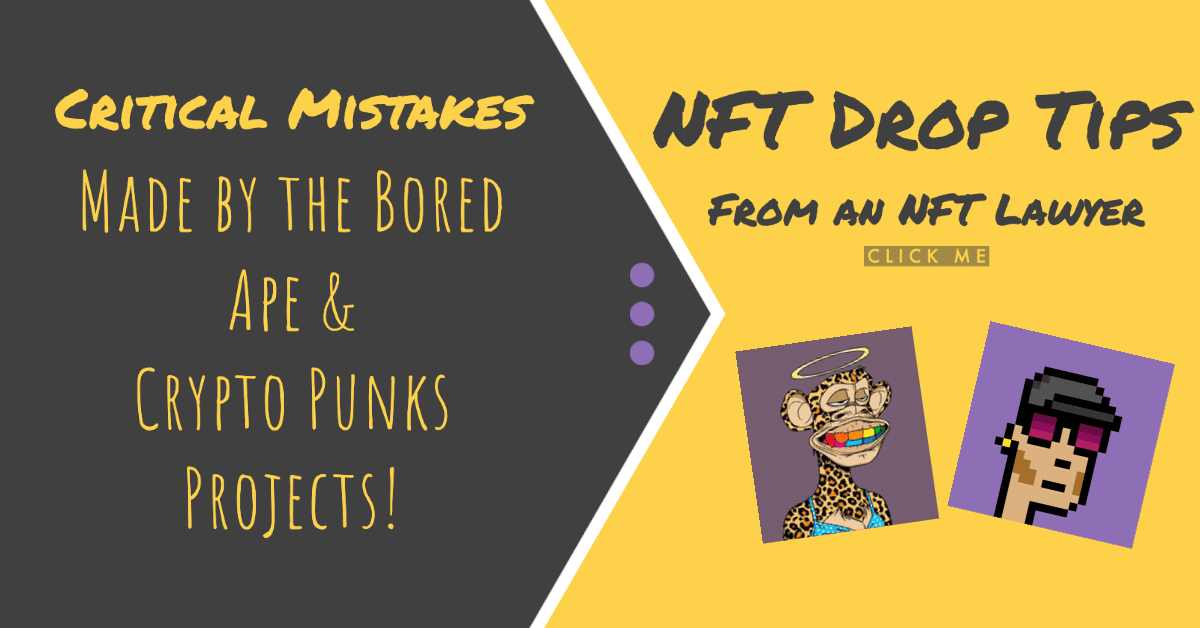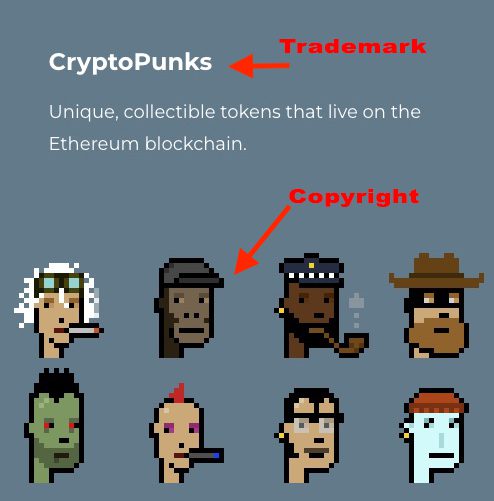Enrico Schaefer - March 8, 2022 - Non-Fungible Tokens (NFTs)

My name is NFT lawyer Enrico Schaefer. I am an attorney specializing in blockchain technology. Today, we’re going to talk about non-fungible tokens (NFTs). We will look at two popular NFT offerings, the Bored Ape Yacht Club and Crypto Punks. Both NFT drops have been unexpectedly and amazingly successful. But the companies behind these NFT projects failed to account for several critical legal issues when they launched. These NFT drops offer valuable learning lessons which every NFT project, brand, and company must consider before launching their NFTs project.
In this video, we will also examine the legal strategies each project got right on trademark registration and copyright licensing. These two projects offer a roadmap for any company, brand, or agency looking to launch an NFT project. After watching the video, we provide a checklist of legal issues for any NFT drop. Remember, if you don’t get it right before NFTs are minted, there may not be any way to fix your mistakes.
A trademark can be any word or phrase symbol design combination of things that identifies your goods and services in the marketplace. A trademark identifies the source of goods and services so that consumers know if they can trust the seller. Trademarks help sellers and buyers guard against counterfeit and fraud which has become rampant in the NFT marketplace. If you are the Bored Ape Yacht Club, you’re operating under the brand “Bored Ape Yacht Club,” which is your trademark. Just like “Nike” can protect its brand name, so can every NFT project if you set your foundation correctly.
Your trademark identifies your company as the source of goods and services related to your NFTs and digital assets (the pictures linked to your NFT smart contracts). Your company can leverage your trademark rights to protect your brand against infringers who might mimic your offerings to cause confusion in the marketplace, defraud consumers and offer counterfeit (confusingly similar) NFTs. Think about fake Louis Vuitton handbags. Just like Luis Vuitton can shut down counterfeiters of similar bags, so can your NFT project if you set the correct foundation protecting your intellectual property rights
Copyright is different than a trademark. Copyright identifies the author or artist who owns the “Work” (i.e. art, photograph, video, NFT asset). The “Crypto Punk” brand name is a trademark. The image of the Crypto Punk linked to the NFT placed on to the blockchain is copyright protected. The gallery name is a trademark. The art inside the gallery is protected by COpyright law. Copyrights protect original works of authorship, such as the digital asset being offered with the NFT. The digital asset that goes along with the NFT sale is potentially copyrightable. If you don’t copyright protect your digital assets, you’re going to have some serious legal problems down the line. Your NFT drop will license your copyright-protected digital asset (i.e., the Bored Ape image) to the NFT purchaser.

When you buy the Bored Ape NFT, you receive a license to the image. The license will tell you what rights you receive and what (limitations on) rights are restricted. Due diligence is critical. You need to know who owns the actual copyright (the artists who put digital pen to paper). The Bored Ape Yacht Club’s license agreement is poorly drafted and internally inconsistent. It is unclear whether Crypto Punks included any license agreement with their NFT drop. Both projects made serious legal mistakes when they launched; those mistakes are not easily fixed and may be impossible to remedy. Imagine buying a house without a purchase agreement or title. NFTs are no different. They require both chain of tile and a contract setting forth the seller and buyers’ essential contract terms.
Learn more about NFT licensing.
In the video, we look at both the trademark and copyright model employed by the BOred Ape yacht CLub and Crypto Punks. We also review the licensing language and terms of use for each NFT project.

Here is the money list of NFT legal tips you have been waiting for! If you are considering launching an NFT project or selling NFTs, your attorney needs to consider and advise you on these legal issues before your NFT launch. The earlier you understand the importance of these critical legal issues, your project will have less legal risk, and the more value you will be able to provide to NFT purchasers. The ROI on good legal advice by a competent NFT lawyer is huge.
My name is blockchain attorney Enrico Schaefer. We’ll see you next time. Don’t forget to subscribe, follow our channel, and we will be here to help all along the way.